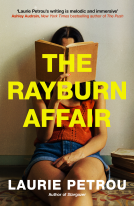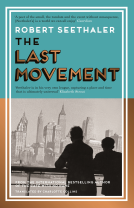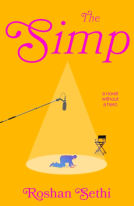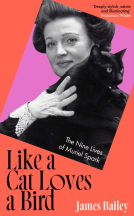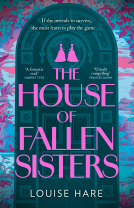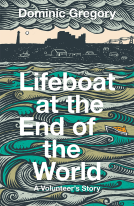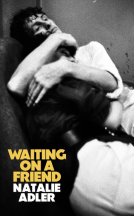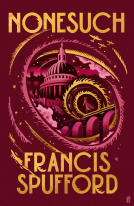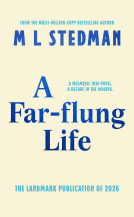
The Imagined Life
by Andrew Porter
This title was previously available on NetGalley and is now archived.
Send NetGalley books directly to your Kindle or Kindle app
1
To read on a Kindle or Kindle app, please add kindle@netgalley.com as an approved email address to receive files in your Amazon account. Click here for step-by-step instructions.
2
Also find your Kindle email address within your Amazon account, and enter it here.
Pub Date 14 Aug 2025 | Archive Date 21 Aug 2025
Talking about this book? Use #TheImaginedLife #NetGalley. More hashtag tips!
Description
A taut, elegiac, and engrossing read, The Imagined Life follows Steven Mills, a man in a struggling marriage who becomes obsessed with uncovering the truth about the father who vanished from his life when he was only twelve.
Driving up the coast of California, Steven seeks out his father’s friends, family, and former colleagues, and is transported back to his 1980s childhood: his parents’ legendary pool parties, black-and-white films on the backyard projector, his father’s male friends in the cabana house… With every revelation his father becomes more difficult to recognise, and, with every insight, Steven must confront truths about his own life.
In cinematic prose, Andrew Porter explores the full nexus of male relationships: fathers and sons, husbands and lovers—set achingly against the US AIDS epidemic and the homophobia of the 1980s—and masterfully weaves a tale of trauma, generational secrets, forbidden love, and shame.
Available Editions
| EDITION | Ebook |
| ISBN | 9781787705913 |
| PRICE | £10.99 (GBP) |
| PAGES | 288 |
Available on NetGalley
Average rating from 16 members
Featured Reviews
 Susan O, Reviewer
Susan O, Reviewer
Andrew Porter’s novel sees a middle-aged man who’s been carrying the burden of his father’s disappearance since he was twelve years old, determined to get to the bottom of what happened to this vibrant, volatile man.
Steven remembers his parents’ poolside parties in the early ’80s, drink and a few spliffs smoked, usually culminating in films projected onto the cabana house wall. His father was a bright young academic, popular, with a promising future ahead of him, tenure almost in the bag. In the summer of 1983, one such party proved pivotal when a young visiting academic turns up, charming many including Steven’s father. The evening ends in his father’s disgrace although twelve-year-old Steven can’t fathom why. The promise of tenure recedes as his father moves into the cabana house, ostensibly to finish his book, visited by his lover, and increasingly manic.
Opening with a lengthy flashback to the party, Porter unfolds his story through Steven, whose life has been overshadowed by loss and not knowing, in a narrative threaded with memories. His wife’s announcement that she can no longer bear his emotional distance has provoked a crisis in Steven who has always feared he might be abandoned again. The twelve-year-old Steven puzzles over why his father has been denied tenure, embarrassed by his increasingly manic behaviour. As the adult Steven visits his father’s colleagues, friends and beloved brother, a picture emerges of a man whose illness overwhelmed him, who dearly loved his wife but fell in love with a man who fell in love with him, and who was derailed by a college unable to accept him for what he was. Steven is an engaging narrator who drew me into this absorbing, compassionate novel about love, loss and a late understanding of how trauma can shape us.
 Graham F, Reviewer
Graham F, Reviewer
The first party narrator Steven Mills (a writer and teacher), his marriage on pause having moved out of the house where his wife (a Social cause activist) and young son live, sets out to drive the Coast of California to try to trace and re-understand the story of his charismatic but volatile English literature academic father.
The latter in 1984 (when Steven was a teenager) disappeared from the family home (and their lives) after a series of on-off estrangements with Steven’s mother (connected both to his mental state – which appears to be some form of manic-depression - and his relationship with another male academic) and a similarly connected failure to get tenure at his University despite (or possibly because of) his popularity with students and his body of publications.
Having for years due to his anger at his father not tried to trace him – Steven’s attempts now to look for traces of his father and to re-examine his own memories are also about him trying to understand how this formative experience has adversely influenced his future relationships and in particular his seeming inability to commit to and invest in his marriage – a failure which lead to his wife’s suggestion of a temporary separation.
A 1960s Italian arthouse film (L’Avventura - https://en.wikipedia.org/wiki/L%27Avventura) which Steven remembers watching with his father on the day of the latter’s disappearance sets us up that there may be no solution to the mystery of his father’s disappearance of fate/current hereabouts so that in many ways it’s a surprise when we do get some resolution here (partly on the first albeit open to dispute, definitively on the second) but less of a surprise that Steven realises that his search was really an interior one and
In many ways this novel could be said to cover a number of relatively cliched topics: a largely campus (or more accurately mostly off-campus but still dominated by faculty members) novel; an examination of not just parent-child relationships but also the idea of a missing father; and to represent a relatively privileged group of individuals (set mainly in the Bay Area of California even the “modest” houses have swimming pools and decent size gardens) and at least pre-fall the life of the narrator and his parents is one of glamorous pool parties; as well as some not exactly uncharted social themes – the way in which homosexuality could only be acknowledged in small private social circles even in liberal 1980s California academia and how its more public expression could still ruin social cachet and acceptability; even a putative and explorative same-sex attraction as a young man (Steven’s close friendship with Chau while a side story to the novel is perhaps one of its strongest aspects – particularly as we sense how Steven’s lack of closeness with his father, his father’s close relationships with male friends and particularly the attractive colleague all impact on his unsuccessful attempts to really understand his feelings for Chau, so foreshadowing how similar issues will recur in his life and pertinently for the novel his marriage and own fatherhood).
And more generally despite the familiar topics this is a very smoothly executed, tightly written (the US edition's blurb’s description of “taut” is not misleading) novel with almost mannered prose which examines memory and time (Proust is a repeating and explicit reference) and rumours (rather more clunkily the Fleetwood Mac album of the same name is something of a lodestone for the teenage Steven, desperately trying to understand a father he still admires despite the erratic nature of his parenting and general behaviour) but in the context of family relationships.
It is also one I read effectively cover to cover which was an enjoyable and mentally satisfying reader experience.
If I had a doubt though it is that a book very much about memories, will I suspect not prove particularly memorable – not I think due to the writing but to the rather uninteresting protagonists/setting.
Nevertheless (with this caveat) recommended.
 Alexa M, Reviewer
Alexa M, Reviewer
Thanks to NetGalley and the publisher for an advance copy of this book.
Initially I found this to be quite an absorbing read. It certainly is written in "cinematic prose", the pool parties etc., are so vividly described that I felt that I was watching them unfold rather than reading about them.
Steven is an engaging enough character but the real tragedy is what happened to his father and it is with his father that my sympathies lay.. As the book progresses we see that Steven is not so much looking for his father as trying to resolve the difficulties he has in his own life and is using the quest for his father as a means to better understanding himself. There is a very sad and bleak line in the book where Uncle Julian says that Steven's father was not actually that hard to find it was just that nobody ever really wanted to find him.
As the book wears on it starts to meander a little and, unlike the blurb, I would not describe it as "taut". I would also say that the LBTQIA+ aspect is not very strong; The blurb also says "set achingly against the US AIDS epidemic and the homophobia of the 1980s". I did not see the AIDS issue addressed at all in the book and the homophobia seems restricted to the members of the faculty.
All in all, it is an interesting read and parts of it have lingered in my memory.
Atmospheric and melancholy, this is a beautiful study of a man in mid life searching for his own father who, thanks to mental illness and societal restrictions disappeared from view throughout his childhood. This is a novel that works out its emotional pain in Hopperesque interiors and bleached California landscapes. In part it reminded me of Christopher Isherwood's A Single Man.
 Andrija F, Educator
Andrija F, Educator
I started reading this book when the latest heat wave began to break. There's a particular feeling that I get when colder weather comes after a long heat wave. It's a bit feverish and somewhat like experiencing the beginning of the flu. I always associate it with being a child and watching the film Annie (don't ask). In any case, this novel fit very well with that feeling, not least because it evoked all the famous film noirs, long summer evenings, and cocktail pool parties, creating a simulated patina of memories I never had. Simulation, or rather simulacrum, is important for another reason as well. The entire novel deals with the various personas of the narrator's father, who is always diffracting without a solid center (until the very end—and this is my one critique of the novel—when the narrative is tied up too neatly). This is all pretty queer, as it should be. The father was also queer in the very homophobic academia of the late 1970s and early 1980s—literature and film studies, no less—just before queer theory came into existence.
 Book Trade Professional 1097230
Book Trade Professional 1097230
A very enjoyable read. What I enjoyed most about this novel was the exploration of relationships being drip-fed through the narrator's experience, both past and present, and how it took the full length of the novel before all of the secrets were unravlled and truth was revealed.
Thank you to the publisher and NetGalley for the chance to read this ARC.
The Imagined Life is a quiet, reflective novel about family, memory, and grief. For me, this story hit unusually close to home. Steven’s father is gay, mentally ill, and left him and his mother when Steven was young, a history that mirrors my own. Porter captures the way certain memories, like a last meeting or a scene at a pool party, can lodge in the mind for decades.
I was a bit disappointed by the storyline with Chau, which felt unnecessary and distracted from the parts I wanted more of: how Steven’s mother coped after her husband came out, and the years Steven wrestled with drugs and alcohol. Still, it’s a tender, introspective read that will resonate with anyone interested in how the past shapes us.
Readers who liked this book also liked:
Louise Hare
Historical Fiction, Multicultural Interest, Mystery & Thrillers
